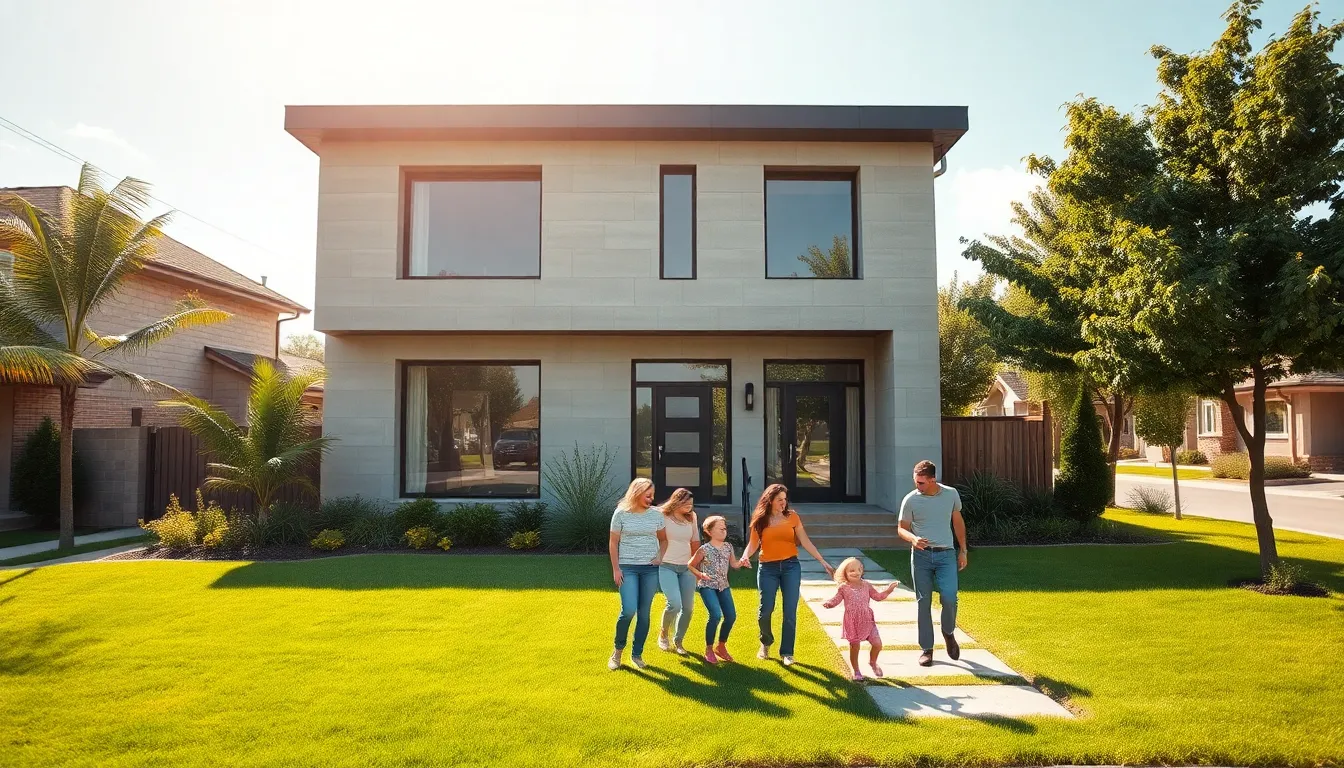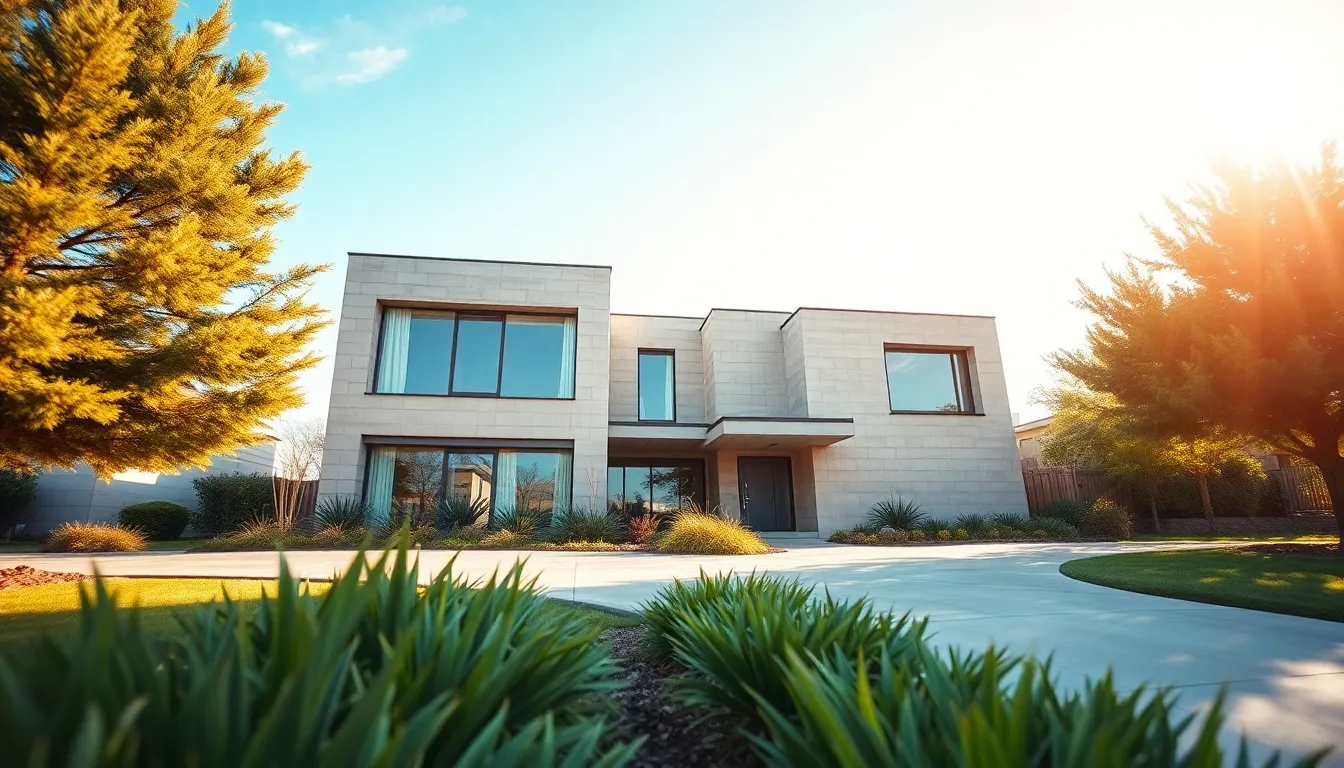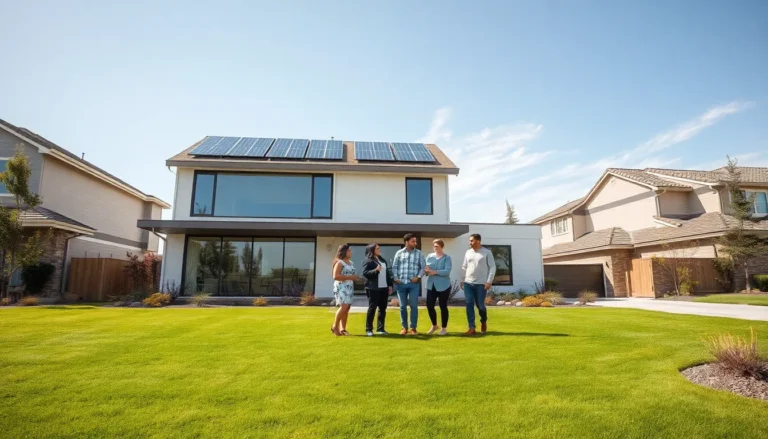Table of Contents
ToggleWhen it comes to building a home, many people ponder the age-old question: What material reigns supreme in energy efficiency? Concrete block homes might just hold the answer. Picture this: a sturdy, reliable structure that not only stands the test of time but also keeps your energy bills in check. Who wouldn’t want that? In this text, we’ll jump into the energy efficiency of concrete block homes, bust some myths, and explore the reasons why they might just be the perfect choice for your next abode. Let’s dig in, shall we?
Understanding Concrete Block Homes

Concrete block homes are constructed using solid blocks made from concrete, offering a robust alternative to traditional wood framing. These homes come in various styles and designs, often showcasing modern aesthetics along with rugged durability. What sets them apart is their ability to act as an excellent thermal mass, absorbing heat during the day and releasing it at night. This unique property is the foundation for their energy efficiency, allowing homeowners to enjoy a comfortable indoor climate without cranking up the thermostat.
Also, concrete block construction methods tend to be less prone to environmental issues like pest infestations, rot, and warping. This adds longevity and stability, making them an increasingly popular choice in various climates.
Benefits of Concrete Block in Energy Efficiency
Concrete blocks boast a multitude of benefits when it comes to energy efficiency.
Thermal Mass Properties
One of the standout features of concrete block homes is their impressive thermal mass properties. These homes absorb and store heat during the day, providing a natural temperature regulation system. When the sun sets, the stored heat radiates, keeping your home warmer at night. This means less reliance on heating systems during chilly months, translating into significant energy savings over time.
Insulation and Air Sealing
Air sealing is crucial for energy efficiency, and concrete block homes excel in this area too. When properly insulated, these homes offer excellent resistance against air leaks. Combined with insulation materials, concrete blocks create a tight envelope that minimizes heat loss in winter and heat gain in summer. As a result, homeowners can achieve comfortable indoor temperatures with minimal energy input, significantly reducing heating and cooling costs.
Cost-Effectiveness of Concrete Block Homes
While the initial investment in concrete block construction might seem hefty, the long-term savings often outweigh the upfront costs. Durable and low-maintenance, these homes require fewer repairs compared to traditional wood structures. Homeowners can save money on energy bills as well, thanks to the inherent energy efficiency of concrete blocks. When evaluating the true cost of homeownership, it’s essential to factor in these energy savings, which can enhance the overall affordability of a concrete block home.
Environmental Impact of Concrete Block Construction
Concrete block homes are not just practical: they also carry environmental benefits. Concrete is made from abundant natural materials and can be locally sourced, reducing transportation emissions. Plus, the durability of concrete means these homes can stand for decades with minimal maintenance, thereby decreasing the overall environmental footprint.
Many manufacturers also employ sustainable practices, utilizing recycled materials and minimizing waste during production. Besides, the energy-efficient properties of concrete blocks lead to reduced energy consumption, contributing to a lower carbon footprint throughout the home’s life cycle.
Comparing Concrete Blocks to Other Building Materials
When compared to traditional wood frames or even modern steel constructions, concrete blocks often shine in energy efficiency. Here’s a quick breakdown:
- Wood Framing: While wood is a renewable resource, it’s susceptible to termites and rot, leading to higher maintenance costs over time. Energy efficiency can be variable based on insulation.
- Steel Framing: Steel is strong and resistant to pests but can conduct heat, leading to energy losses without proper insulation.
Case Studies: Energy Efficiency in Concrete Block Homes
Plenty of case studies demonstrate the energy efficiency of concrete block homes. For instance, a study conducted in the Southern United States showed a significant drop in heating and cooling costs for homeowners who opted for concrete block over traditional framing. These homes realized savings averaging 20% on their energy bills, thanks to superior thermal mass and insulation.
Common Misconceptions About Concrete Block Homes
Even though their advantages, several misconceptions about concrete block homes persist. For instance, many people think they are cold and uninviting. In reality, when properly designed, these homes can provide warmth and comfort, definitely not a cave-like experience. Also, there’s a belief that concrete blocks are heavy and cumbersome to work with. While they do have considerable weight, modern construction techniques have made it easier to build with concrete blocks, yielding beautiful and functional homes.







